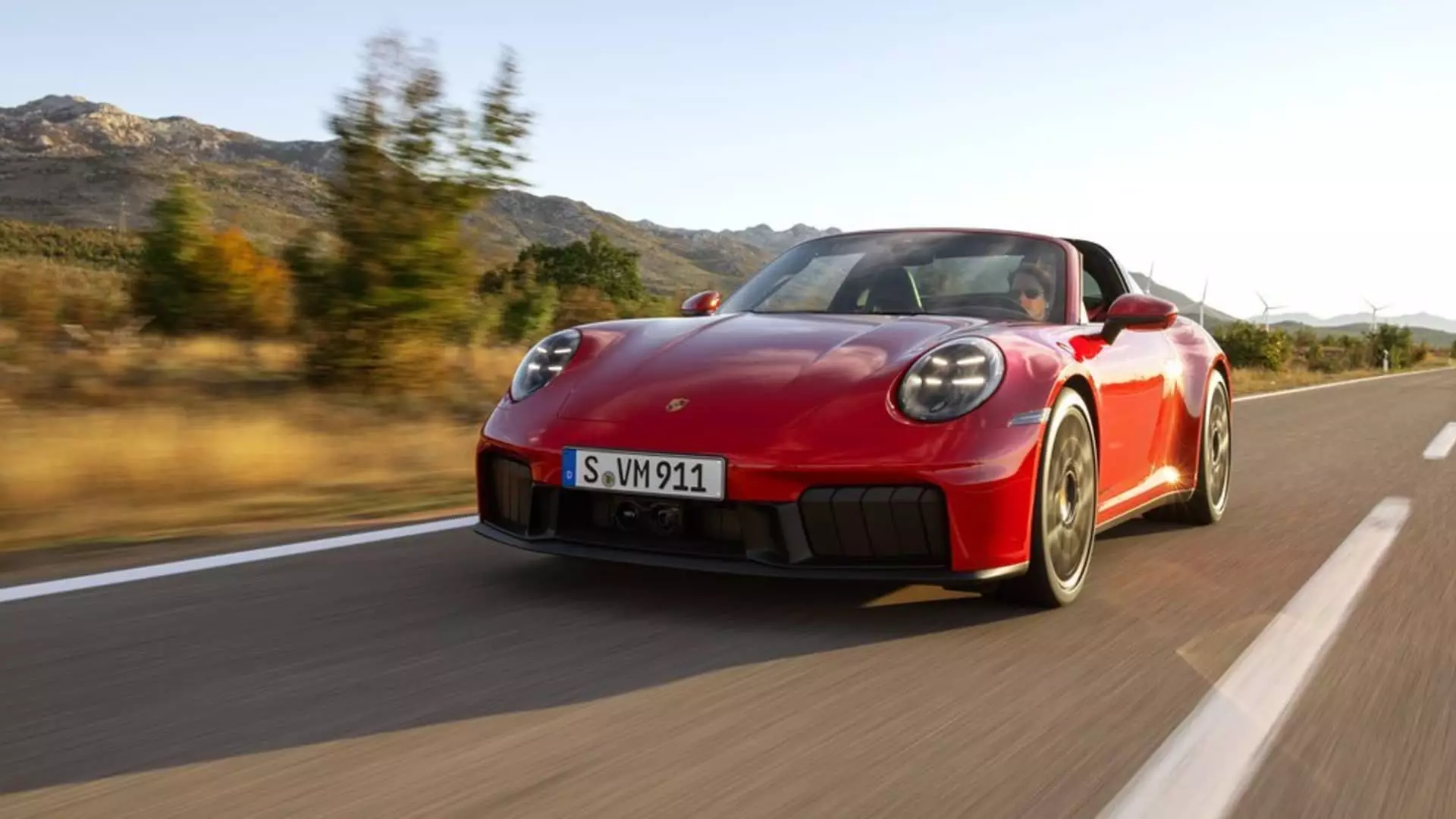Porsche recently unveiled the first-ever production hybrid version of its iconic 911 sports car, the 2025 911 Carrera GTS hybrid, with a starting price of $164,900. This marks a significant shift for the German automaker, as it joins the trend of increasing electrified vehicles and tightening fuel economy standards. The hybrid model promises enhanced performance while maintaining the famed driving dynamics of the 911. Let’s take a closer look at the pros and cons of this new offering from Porsche.
One of the standout features of the new 911 Carrera GTS hybrid is its impressive acceleration capabilities. The car can go from 0 to 60 mph in just 2.9 seconds, which is 0.3 seconds quicker than the previous non-hybrid GTS model. This increase in speed is thanks to the newly developed 3.6-liter boxer hybrid engine that generates 532 horsepower and 449 foot-pounds of torque. The hybrid powertrain is seamlessly integrated into the overall concept of the car, enhancing its performance significantly. Additionally, the 911 Carrera GTS hybrid will be available in both coupe and convertible versions, catering to a wider range of customers.
While the new 911 Carrera GTS hybrid offers improved performance and a more eco-friendly driving experience, it comes at a hefty price. With a starting price of $164,900 for the coupe version and $178,200 for the convertible, the hybrid model is significantly more expensive than its non-hybrid counterparts. The cost of ownership and maintenance for hybrid vehicles can also be higher compared to traditional gasoline-powered cars. Additionally, the availability of charging infrastructure and range anxiety are common concerns for hybrid and electric vehicle owners.
Porsche’s Electrification Strategy
Porsche’s decision to introduce a hybrid version of the 911 is part of its broader electrification strategy. The company aims to offer a mix of electrified vehicles, including plug-in hybrids and all-electric models, to meet the evolving needs of customers. Porsche has seen success with its current lineup of electrified vehicles, including plug-in hybrid Cayenne and Panamera models, as well as the all-electric Taycan. The company expects a majority of its vehicles to be partially or fully electric by 2030, in response to growing customer demand for sustainable transportation options.
The introduction of the Porsche 911 Carrera GTS hybrid represents a significant milestone for the iconic sports car. The hybrid model offers enhanced performance and a more sustainable driving experience, aligning with Porsche’s electrification strategy. While the high price and potential maintenance costs of hybrid vehicles may be a concern for some buyers, the 911 Carrera GTS hybrid presents an exciting option for enthusiasts looking for a blend of performance and efficiency. As Porsche continues to innovate and expand its electrified lineup, the future looks bright for the iconic 911 sports car.


Leave a Reply